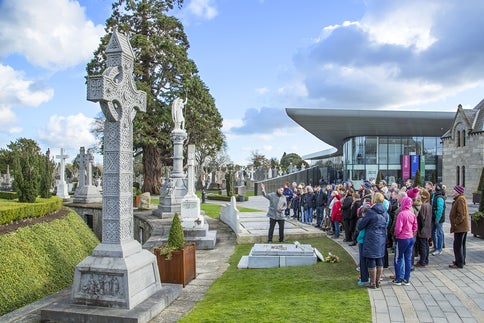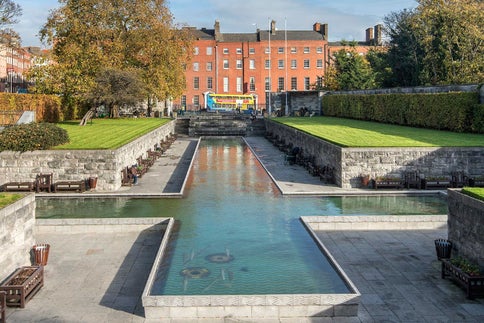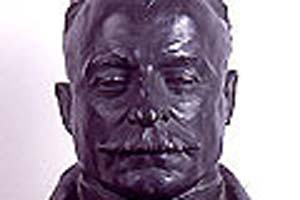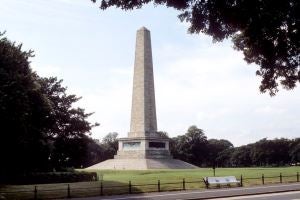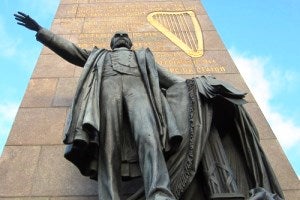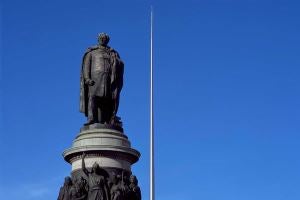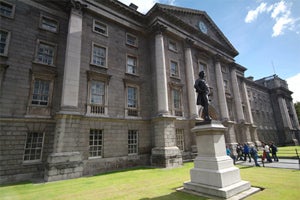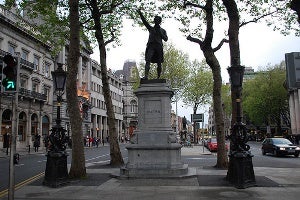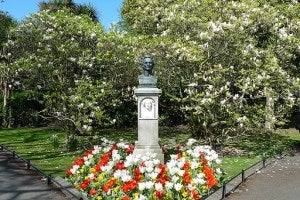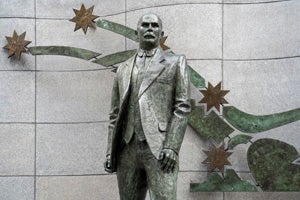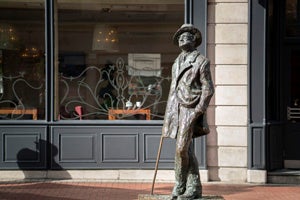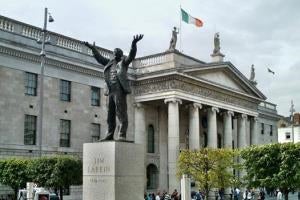- Home
- Things to see & do
- History & heritage
- Cú Chulainn
Cú Chulainn
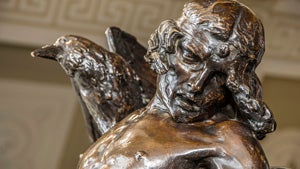
- Free to visit
The son of the warrior god Lugh and the mortal woman Deichtine, young Cú Chulainn ('the hound of Chulann') won his name after killing the smith Chulann's fierce hound in self-defence, and offering his services as a guard dog in its place. In the Táin he is described as a handsome youth with vari-coloured hair - 'brown at the base, blood-red in the middle, and a crown of golden yellow' - and seven fingers and toes on each hand and foot.
Oliver Shepard's sculpture of the death of Cú Chulainn - killed in battle by his enemy Lugaid - was chosen by Éamon de Valera as the official memorial to the 1916 Easter Rising. At its unveiling at the General Post Office in 1935, de Valera described the work as “a beautiful piece of sculpture, the creation of Irish genius, symbolising the dauntless courage and abiding constancy of our people.”
While at the GPO it is highly recommended that you visit the Witness History Museum to immerse yourself in the action of the 1916 Rising. Or enjoy the Courtyard Café, which is an oasis of calm on busy O'Connell St.
- Experience Glasnevin: Ireland's National CemeteryThings to see & doStatues & monuments
- Garden of RemembranceThings to see & doStatues & monuments
- Arthur GriffithThings to see & doStatues & monuments
- Arthur Wellesley Duke Of WellingtonThings to see & doStatues & monuments
- Charles Stewart ParnellThings to see & doStatues & monuments
- Daniel O'Connell MonumentThings to see & doStatues & monuments
- Edmund BurkeThings to see & doStatues & monuments
- Henry GrattanThings to see & doStatues & monuments
- James Clarence ManganThings to see & doStatues & monuments
- James ConnollyThings to see & doStatues & monuments
- James JoyceThings to see & doStatues & monuments
- Jim LarkinThings to see & doStatues & monuments
